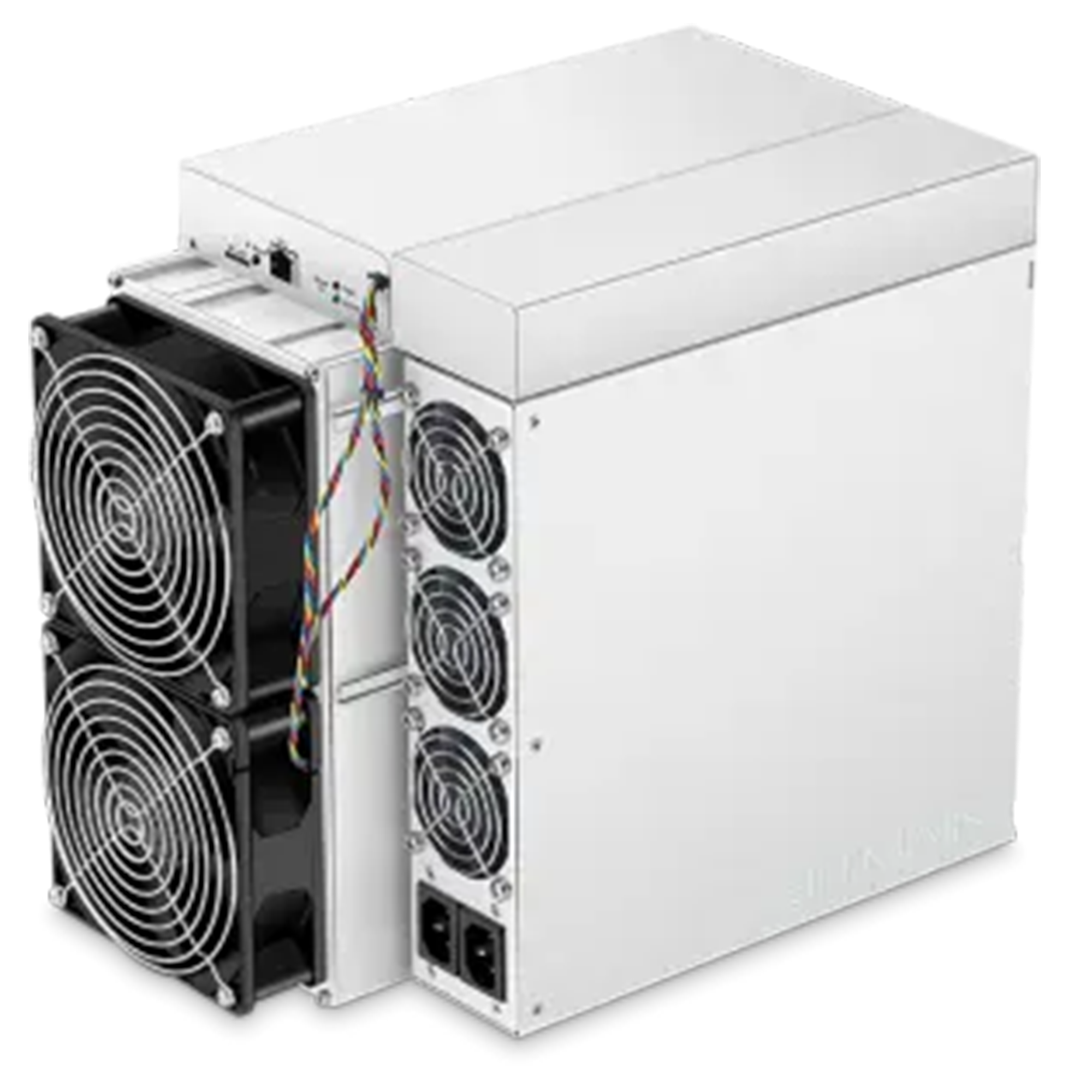Compare Bitmain Antminer DR7 vs Goldshell DG Card
Detailed comparison between Bitmain Antminer DR7 and Goldshell DG Card. Compare hashrate, power consumption, profitability, and technical specifications.
Quick comparison: Bitmain Antminer DR7 vs Goldshell DG Card. Daily profits: $-1.53 vs $-0.06.
Miner Comparison Results

Bitmain Antminer DR7
Blake256r14 • June 2024

Goldshell DG Card
Scrypt • March 2025
Profitability Comparison
Daily Profit
Monthly Profit
Yearly Profit
Technical Specifications

Bitmain Antminer DR7

Goldshell DG Card
Profit Analysis
A detailed comparison of the daily, monthly, and yearly profitability between the two selected ASIC miners, highlighting which offers the better return on investment.
The Goldshell DG Card delivers superior daily profit of $-0.06 versus $-1.53 from the Bitmain Antminer DR7. With current electricity rates, the Goldshell DG Card provides better return on investment through more efficient power consumption relative to its mining output. Power consumption analysis reveals the Bitmain Antminer DR7 requires 2730W compared to 65W for the Goldshell DG Card. This 2,665W difference translates to approximately $5.12 additional daily electricity costs, which significantly impacts long-term profitability especially during periods of lower mining rewards.
Frequently Asked Questions
Everything you need to know
Which miner is more profitable: Bitmain Antminer DR7 or Goldshell DG Card?
What is the hashrate of the Bitmain Antminer DR7?
What is the hashrate of the Goldshell DG Card?
Which cryptocurrencies are best to mine with Bitmain Antminer DR7 or Goldshell DG Card?
What is the full-load power consumption of Bitmain Antminer DR7 or Goldshell DG Card?
How efficient is Bitmain Antminer DR7 or Goldshell DG Card in terms of hashrate per watt?
How does electricity cost affect the profitability of Bitmain Antminer DR7 or Goldshell DG Card?
What is the estimated daily and monthly income from mining with Bitmain Antminer DR7 or Goldshell DG Card?
What are the operational noise levels of Bitmain Antminer DR7 or Goldshell DG Card?
What cooling solutions are recommended for Bitmain Antminer DR7 or Goldshell DG Card?
Hardware Comparison
A side-by-side breakdown of key hardware specifications to evaluate performance, efficiency, and overall value of the two selected ASIC miners.
Release timeline shows the Bitmain Antminer DR7 launched in June 2024 while the Goldshell DG Card entered the market in March 2025. Newer miners typically incorporate improved chip architecture and manufacturing processes, leading to better efficiency and performance characteristics. Physical dimensions comparison reveals the Bitmain Antminer DR7 measures 430 x 195 x 290mm while the Goldshell DG Card has dimensions of 132 x 21 x 88mm. Size considerations directly impact rack density, shipping costs, and facility space requirements for mining operations. Weight specifications show the Bitmain Antminer DR7 at 16100g compared to 325g for the Goldshell DG Card. Heavier units often indicate more robust construction and heat dissipation components but may require stronger mounting solutions and increase shipping expenses. Acoustic performance differs with the Bitmain Antminer DR7 operating at 75db versus 35db for the Goldshell DG Card. Noise levels significantly impact placement options, with quieter units suitable for residential or office environments while louder miners require dedicated facilities with proper sound isolation. Humidity specifications indicate the Bitmain Antminer DR7 operates within 10 - 90 % conditions compared to 10 - 90 % for the Goldshell DG Card. Better humidity tolerance enables deployment in more diverse geographic locations and reduces the need for expensive climate control systems in mining facilities.
Why Choose Our ASIC Miner Comparison Platform
Get the most accurate, transparent, and data-driven insights to choose the best mining hardware for your goals.
Real-Time Market Data
Our system pulls live pricing and profitability metrics to keep comparisons accurate and relevant.
Transparent Performance Metrics
Compare hashrate, efficiency, and ROI side-by-side without hidden data or biased rankings.
Clean & Intuitive Interface
Our comparison dashboard is designed for clarity — quickly find what matters most without the clutter.
Expert-Backed Analysis
Each comparison is verified by experienced mining professionals to help you make the most profitable choice.
Built for Miners, by Miners
Our mission is to simplify ASIC miner research with real data, transparent comparisons, and professional insights — helping you save time, reduce risk, and maximize profitability.
Compare ASIC Miners
Discover why our platform is the most reliable and transparent way to compare ASIC miners for maximum profitability.
Choosing our ASIC miner comparison platform gives you a clear advantage in navigating the complex and fast-changing world of crypto mining. We provide the most accurate, data-driven insights sourced directly from manufacturers and real-time market conditions, ensuring you always have access to up-to-date profitability, efficiency, and cost metrics. Our comparison tools let you easily evaluate hashrate, power consumption, ROI, and break-even periods, helping you identify which miner best fits your budget and long-term goals. Whether you’re a first-time buyer or an experienced investor managing a large-scale operation, our transparent and easy-to-use platform helps you make smarter, faster, and more profitable decisions.
Key Insights
Quick highlights comparing the performance and features of the selected ASIC miners.
The Goldshell DG Card generates $1.47 more daily profit than the Bitmain Antminer DR7.
The Bitmain Antminer DR7 generates $3.64 more daily income than the Goldshell DG Card.
The Goldshell DG Card consumes 97.6% less power, making it more energy efficient.
These miners use different algorithms (Scrypt vs SHA-256), so they mine different cryptocurrencies.
Both miners use Air cooling systems.
The Goldshell DG Card is quieter, with a noise level of 35db.
The Goldshell DG Card is 98.0% lighter than the other miner.
 English
English
 German
German
 Hungarian
Hungarian
 Dutch
Dutch
 Spanish
Spanish
 French
French
 Italian
Italian
 Czech
Czech
 Polish
Polish
 Greek
Greek


















